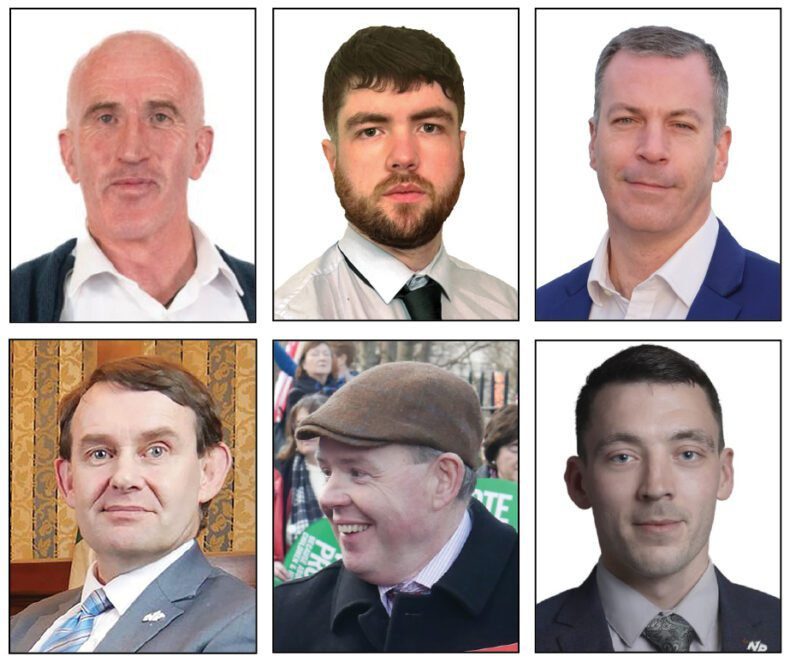
This year’s election results in Ireland show that the country is not immune from far-right politics. Held on 7 June, the local elections and European Parliament (EU) elections attracted over 100 candidates from far-right parties or those linked to them.
Support for these parties in Ireland has historically been low to non-existent. However, the far right has become more vocal and organised across the country in the past five years. Arson attacks and blockades on proposed accommodation for asylum-seekers have become common, alongside calls on social media for all migrants to be deported.
Overthrow the government
Far-right rallies are now regular events, where there are calls for the government to be overthrown, as well as routine attacks on the LGBTQIA+ community and women’s rights. These rallies are attended by between a handful and a few thousand.
In the months leading up to the elections, the largest opposition party, Sinn Féin, had been expected to do extremely well. Polling showed it consistently attracting support at the expense of the traditional vote-getters in Fianna Fáil and Fine Gael.
But in March the party’s long-held position on immigration became better known when its President Mary Lou McDonald stated, “Sinn Féin is not for open borders”, the latter term a common dog whistle among the far right.
The result was an almost instantaneous decline in the polls, undoing months of rapid gains and sometimes dominance over Fianna Fáil and Fine Gael. This ensured that on polling day the latter two did better than expected, with the political status quo remaining largely upheld.
From late 2023 onwards the Farmers’ Alliance, Ireland First, the Irish Freedom Party (IFP), The Irish People, and the National Party (both branches) all announced their intention to run candidates on an anti-immigration platform. Their differences are minimal and centre mostly around definitions of Irish identity and occasional economic disagreements, with the exception of the National Party.
Two parties, same name
In the case of the latter, a falling out between its two leaders, Justin Barrett and James Reynolds, resulted in both men asserting leadership of the party and their respective acolytes claiming the National Party name for themselves.
Applications to the Electoral Commission by both men to amend the party’s registration details, including its leader, were rejected and both factions ran candidates under the same party name.
As a result, voters in some constituencies had the choice of voting for one of two candidates seemingly running under the National Party name, but following different leaderships. For example, this was the case of the EU elections, where in the Dublin Constituency Barrett’s wife Rebecca ran against Reynolds’ deputy Patrick Quinlan.
Overall, at 49.4% turnout was lower than in previous years, but continued a trend set in 2019 and 2014 when turnouts were 50.2% and 51.6% respectively. The two establishment parties maintained their relative electoral success at the expense of Sinn Féin, while the left made no substantial gains.
Self-confessed drug dealer
This trend also saw far-right groups and individuals largely fail in their electoral ambitions. Some, such as Andy Heasman — an admitted former drug dealer — of The Irish People who received just 140 first-preference votes, struggled to gain more than a few dozen votes.
Others, however, were elected, namely: Malachy Steenson, an independent candidate in the North Inner City constituency in Dublin; Quinlan, the candidate for the Reynolds’ branch of the National Party in the Blanchardstown-Mulhuddart constituency; Gavin Pepper, an independent candidate in the Ballymun-Finglas constituency; Tom McDonnell, an independent but founder of far-right Éire Saor in County Kildare; and Glen Moore, a contender for the IFP in the Palmerstown-Fonthill constituency.
Anti-LGBT
In the cases of Moore, Pepper, Quinlan and Steenson, they gained success in the capital, Dublin. All men are regular attendees and speakers at anti-asylum-seeker rallies. After his election Steenson declared his success “a fabulous result for the nationalist movement in Ireland, for the people of Ireland, we’re taking our nation back”.
Of interest to UK readers will be the election of Moore, whose party leader Hermann Kelly, was a press officer for Nigel Farage, when the former UKIP leader was an MEP. Kelly is currently a press officer for right-wing Romanian MEP Cristian Terheș and at a demographics conference in 2021 in Budapest is known to have mixed with anti-gender rights agitators.
Demography is a regular talking point in the Irish far-right milieu, and Kelly is no different, having previously declared Ireland to be in “demographic peril” because of the “LGBT lobby” and its “barren, sterile lifestyles and ideology”, arguing that it “seeks not equality but privileges”.
Like Kelly, McDonnell has voiced opinions on Irish demography: “If we don’t have women breeding, we die out as a breed. We don’t want that to happen.”
After a backlash in response to his comments across the country, McDonnell told the Sunday World that “we need to produce more children of our own origin, of our own people” and that “Khazarian Jews” are attempting to replace Irish people.
Concerning shift
The election of these right-wingers represents only a small percentage of councillors in Ireland. But the success of the far-right groups illustrates a shift and should not be underestimated.
Given the sheer number of far-right candidates standing for election, the wider political wing of the far right in Ireland could be seen to have failed.
The election of even one should be viewed as troublesome, given the increasing boldness and violence of the far right in Ireland. However, the election of five is indicative of a major problem.
Add to that the fact that Ireland First’s Derek Blighe picked up 25,071 first‑preference votes as candidate in the Ireland South constituency in the EU elections.
This was far short of the quota required to gain office, yet more than 25,000 people chose to vote for the leader of a party who supports the “Great Replacement” conspiracy theory and who claims that Ireland is under “assault” from “fake refugees”. His views are well known and him polling these numbers represents a serious shift in Irish politics.
This article first appeared in the Summer 2024 issue of Searchlight





